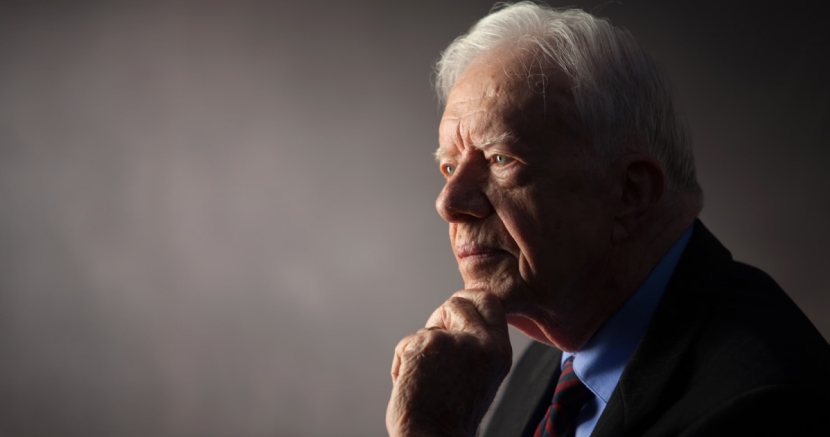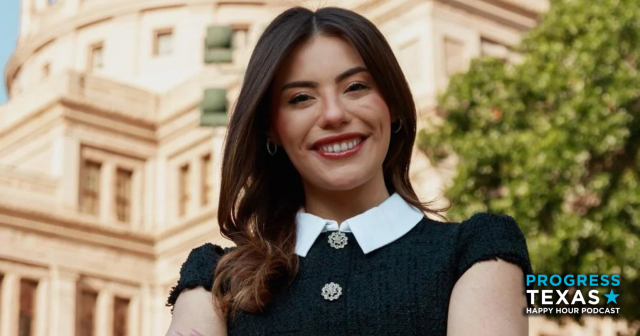It is tragically fitting that just days from the dawning of a challenging new era in America, that our 39th president, a man known for his devotion to peace and humanitarianism, would step off this mortal coil at the age of 100. With this passing of note, we turned to William Melhado and Emma Williams, with the Texas Tribune, who gave a nice remembrance of President Jimmy Carter shown through the proper Texas prism. With Texas’ 26 electoral votes in 1976, Carter’s win became and remains the last Democratic presidential candidate to carry the Lone Star State. In his attempted repeat in 1980, versus his eventual successor Ronald Reagan, Carter became the first sitting U.S. President to visit Brownsville, when he gushed over the Rio Grande Valley’s robust farmland during a low-altitude airplane spin from Houston. That day, Carter reminded onlookers that he had appointed more than 200 Hispanic Americans to senior positions in his administration, the most in history at that time. President Carter will forever be remembered as a peanut farmer, who rose to the nation’s highest office with civility and a respect for the common person. He was, after all, an American progressive hero.
President Carter campaigns in Texarkana on October 23, 1980. (David Woo/The Dallas Morning News
Texas and Carter
The 1980 presidential race also saw direct and controversial involvement from former Texas Governor John B. Connally Jr., who ran for the Republican nomination and later backed Reagan when that effort fell short. The extent of that backing has only lately become more clear with the nefarious story of John Connally and former Texas Lt. Gov. Ben Barnes' trip during the late stages of the campaign to the Middle East. At the height of the Iranian Hostage Crisis, Connally and Barnes passed word to the government of Iran that if they’d continue to hold the 52 Americans imprisoned for the rest of Carter’s term, that Reagan would approach future negotiations with them more favorably. Those 52 hostages were released on the day President Reagan took office, denying Carter a diplomatic win that might have swayed the election his way.
In 2007, Carter joined the efforts to convince Texas Governor Rick Perry to stop the execution of Kenneth Foster, who was on death row for acting as the getaway driver during a murder. Perry would commute Foster's sentence to life in prison just hours before his scheduled execution. Then in 2014 at the age of 90, Carter came to Dallas to build and repair homes with Habitat for Humanity. And following Hurricane Harvey in 2017, Carter joined forces with four other former presidents – George Bush, Bill Clinton, George W. Bush, and Barack Obama. They collectively raised $41 million for Houston recovery efforts.
Jimmy and Rosalynn Carter at a Habitat for Humanity worksite. (Habitat for Humanity
The progressive president remembered
A wide range of Texas political figures have commented on President Carter and his legacy. Former Texas Land Commissioner Garry Mauro, himself one of the last Democrats to date to win statewide office, said, “Jimmy Carter empowered a whole new generation of leadership in Texas… he really was the people’s president.” Texas State Representative John Bryant, who served as Carter's campaign manager in Dallas County during his first run said, “He was committed to human rights and gave Democrats the confidence to be for human rights and for peace and for honesty in government.” And Congressman Lloyd Dogget recalled, “After a single term as president, Jimmy Carter went on to become an exemplary ex-president, serving in so many ways for decades, may he continue to inspire future leaders.” Even Texas Republicans, including Governor Greg Abbott, Senator John Cornyn, and former President George W. Bush made remarks highlighting his humble leadership.
Former president of South Africa, Nelson Mandela (C) is escorted by his wife Graca Machel (L) and former U.S. President Jimmy Carter (R) during a ceremony marking his 89th birthday in Johannesburg, July 18, 2007. (Reuters)
Afterall, President Jimmy Carter’s story is worth exploring, from his humble beginnings in Georgia to an impressive career in the Navy. After his service, he returned to Georgia and his family’s peanut farming business – central to the inspiration towards political life that he drew from witnessing the racial tensions in the South during the Civil Rights Movement. His opposition to racial discrimination, during his race for the Georgia governorship, became prominent to his political identity. Later, in his challenging presidency from 1976 to 1980, his honest approach to the office was overcome by domestic economic struggles and a major energy crisis. However, President Carter will also be remembered for the successful negotiation of the Camp David Accords between Israel and Egypt, diplomatic and humanitarian progress in Africa, strides forward for LGBTQ+ rights, and his steadfast service to communities across the country. President Joe Biden noted Carter as “a man of deeply held convictions… loyal to his family, his community, and his country… an extraordinary leader, statesman and humanitarian.” We all have something to learn from President Jimmy Carter’s past and his commitment to truly American ideals – justice, kindness, and hard work for the greater good.
DONATE
Your donation supports our media and helps us keep it free of ads and paywalls.









